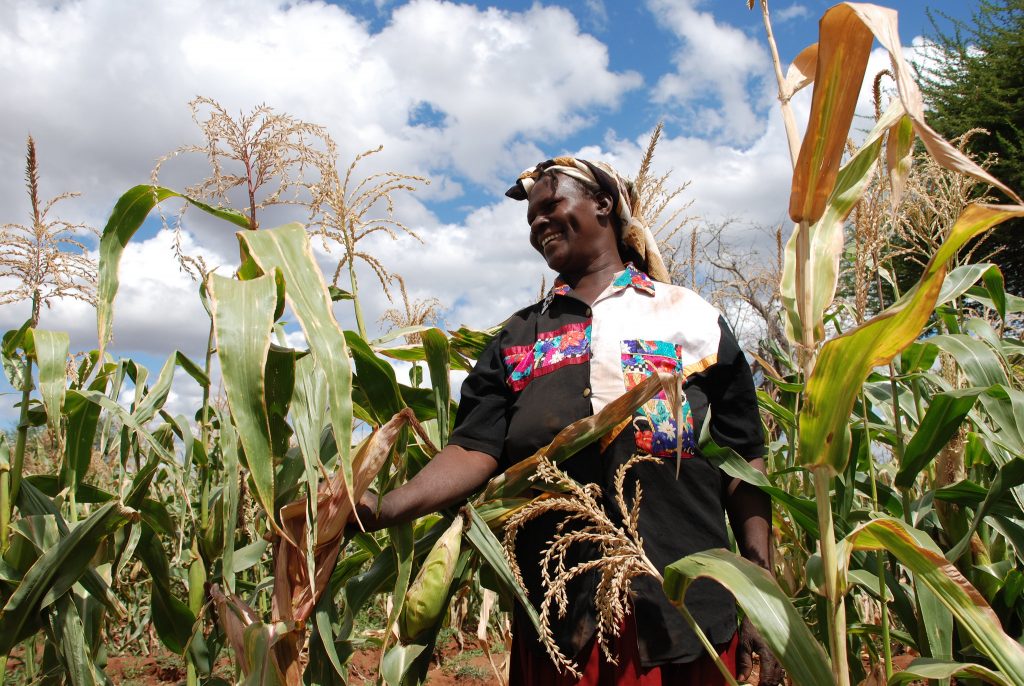
What do 30 years of research on climate-resilient crop adoption tell us?

This article was originally published on the website of the International Maize and Wheat Improvement Centre (CIMMYT).
Global climate change represents an existential threat to many of the world’s most vulnerable farmers. It is introducing new stresses and amplifying the unpredictability and risk inherent in farming. In low- and middle-income countries that are heavily reliant on domestic production, such increased risk and unpredictability threatens disastrous consequences for the food security and wellbeing of rural and urban populations alike.
Given the stakes, substantial investments have been made towards developing climate-resilient crops. But what happens when innovations widely considered to be beneficial don’t gain traction on the ground, among those who stand the most to lose from inaction? What can researchers, policymakers, and funders do to ensure that the most vulnerable rural populations don’t lose out on the benefits of these innovations?
These are the questions posed by a new scoping review co-authored by Kevin Pixley, interim deputy director general for research and partnerships and director of the Genetic Resources Program at the International Maize and Wheat Improvement Center (CIMMYT).
Taking stock
The paper relies on a descriptive analysis of 202 studies from the past 30 years which assess the determinants of climate-resilient crop adoption by small-scale producers in low- and middle-income countries. These were identified through an extensive search and screening process of multiple academic databases and grey literature sources, and selected from an initial pool of over 6,000 articles.
The authors identified interventions determining adoption across the literature surveyed. A key theme which emerged was the need for context-sensitive technical and financial support for climate-resilient crop adoption. Nearly 16% of the studies found that adoption depended on access to relevant extension programs. Around 12% identified access to credit and other financial instruments as key, while a further 12% identified the implementation of community programs supporting climate-resilient crops as a determining factor.
Bill Gates praised the Ceres2030 initiative, noting that “nothing on this scale has ever been done because we lacked the tools to analyze this complex information. But with the new research, solid evidence will drive better policymaking.”
However, the study stresses that there are no one-size-fits-all solutions. Increased adoption of climate-resilient agricultural innovations will depend on interventions being highly context informed. For example, the review shows that while some studies identified older farmers as more reluctant to adopt new technologies, an equal number of studies found the opposite.
Moreover, the review identified important opportunities for further research. Gender-based approaches, for example, remain a blind spot in the literature. The majority of studies reviewed only included women if they were household heads, thus overlooking the role they may play in influencing the adoption of new agricultural technologies in male-headed households.
Driving evidence-based policymaking
The review was published as part of a collection of 10 research papers produced as part of Ceres2030: Sustainable Solutions to End Hunger. The project, a partnership between Cornell University, the International Food Policy Research Institute (IFPRI) and the International Institute for Sustainable Development (IISD), distills decades of scientific and development research into a clear menu of policy options for funders committed to achieving the UN’s Sustainable Development Goal 2: Ending world hunger by 2030.
The full collection of papers was published on October 12 across various Nature Research journals.
Speaking at a German government event on achieving Sustainable Development Goal 2, Bill Gates praised the Ceres2030 initiative, noting that “nothing on this scale has ever been done because we lacked the tools to analyze this complex information. But with the new research, solid evidence will drive better policymaking.”
He went on to highlight the CGIAR’s leadership role in these efforts, saying: “The CGIAR system is a key global institution that is investing in these approaches. It’s a critical example of how innovation can lead the way.”
